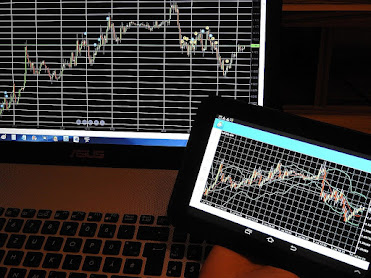Trading Movie Recommendation: Margin Call
Inside views from the world of brokers and bankers, without revealing much about them.
Men staring at screens. Men who talk about things like the "historical volatility index." Men who loosen their ties when things get serious. And who, when things get really serious, put their feet up on their desks and listen to Maria Callas. Margin Call by JC Chandor is set almost entirely in the offices of an investment bank in Manhattan and depicts the final hours before the great financial crisis of 2008 erupted.
It's a tough task to translate such a complicated mishmash of things like hedge funds, credit ratings, mortgage lending and low-interest-rate policies into a movie. Margin Call attempts to do so by taking a purely inside perspective: This is the story of the bankers; the traders in the open-plan offices, their bosses and the very big bosses who are flown in by helicopter when there is a fire. The film doesn't take a look at the consequences of these actions, at the real estate crisis in the U.S. and the many people who were forced out of their homes because of burst mortgages.
At one point only, one of the younger brokers mentions that what is happening will have consequences for "real people" - he really says it like that. But his department head waves it off right away. You can't get anywhere in this job with that kind of attitude. These are the kind of men we're talking about. The same department head, played by Paul Bettany as a smart, not unsympathetic nihilist, spends $50,000 a year on clothes. And $75,000 on whores. Of course, these people are constantly talking about what their other colleagues - especially their superiors - are earning.
Nevertheless, the characters are not drawn as capitalist monsters, but as professionals who have somehow been overtaken by things. The Big Crash doesn't ask the question of guilt; rather, it seems to take the position of the top boss (Jeremy Irons), who gives the order to dump all toxic papers within a morning in order to save the company. Keyword: without alternative. And who thus triggers the financial crisis. Kevin Spacey as a representative of the traditional merchant's honor tries to resist, but even he has no choice but to go along with it. Spacey's character is the most "human" in this glossy financial world, which can be seen in the way he mourns his dying dog. In others, you can see this effort of the screenplay by the way they cry in the bathroom at one point or, in the case of the risk analyst played by Demi Moore, express unspoken regret over their own childlessness (women and careers, right?).
Such standard humanizing screenplay volte-face can't cover up what The Great Crash eminently lacks: ideas about how to translate those ominous numbers on the screens into a story that says more about the financial crisis than an editorial in the business section of the daily paper. At least there is a short scene in which two finance people stand in an elevator together with a cleaning lady, an image with a statement. But otherwise: men staring at screens. One wonders what a David Fincher would make of the material.
And the film fails on another level: It could have been a working place drama that shows people at work and makes this work understandable. It could have been a working place drama that shows people at work and makes this work understandable, conveying something of the energy that a broker must feel when he pushes millions through the world. But director JC Chandor, who also wrote the screenplay, is not interested in this work at all. The internal perspective that is so consistently maintained remains hollow in this way.
Find more related Movies in these two very good lists for political movies and for trading movies. Also check the related channel for updates.
So, get your Popcorn ready and enjoy!

